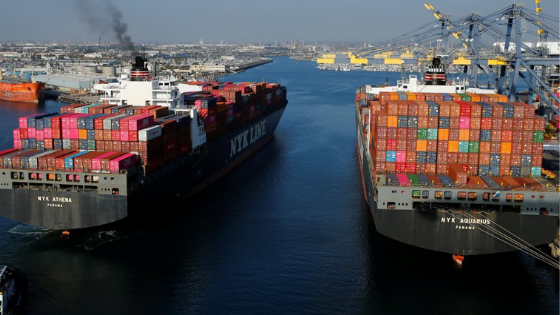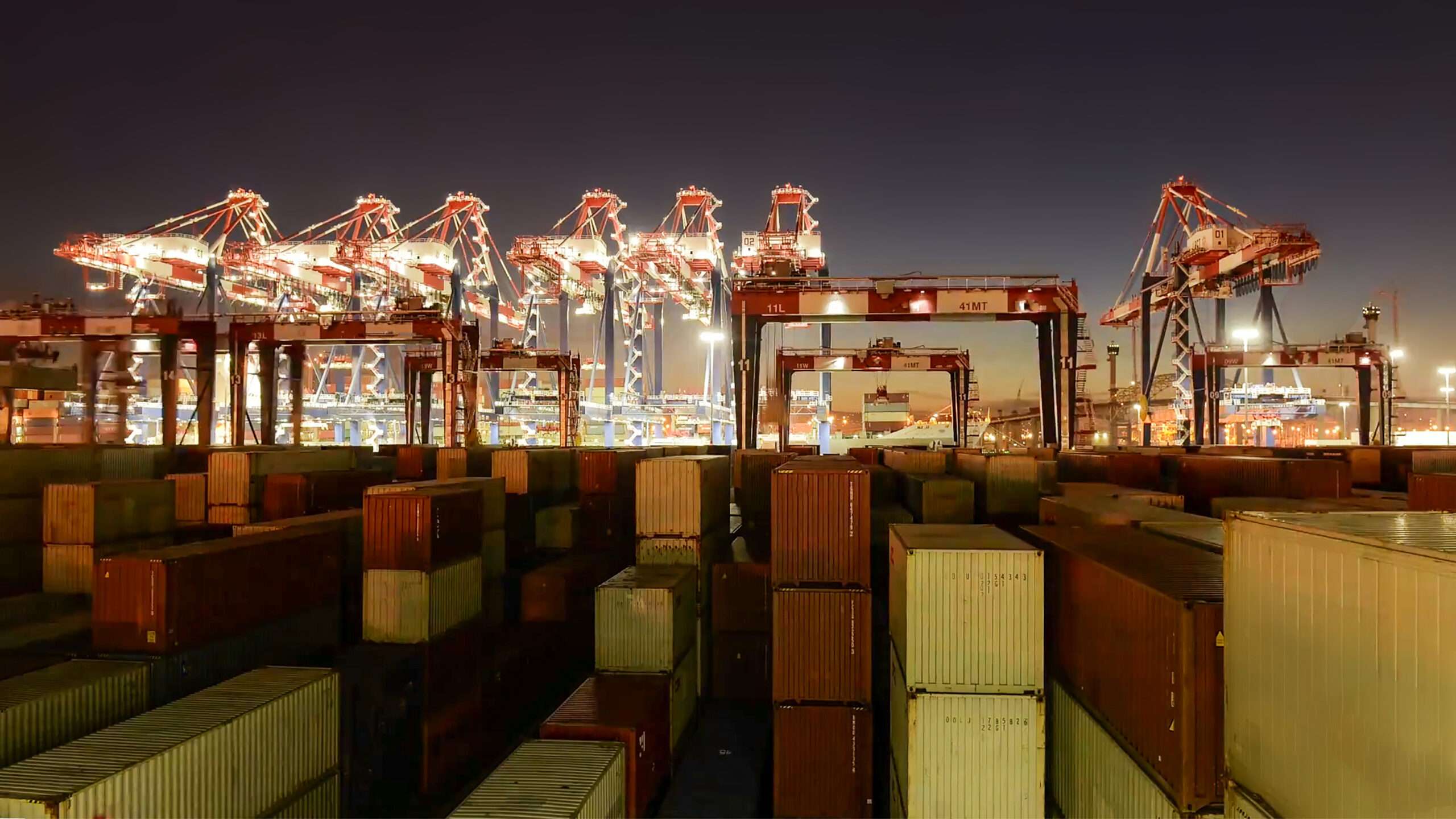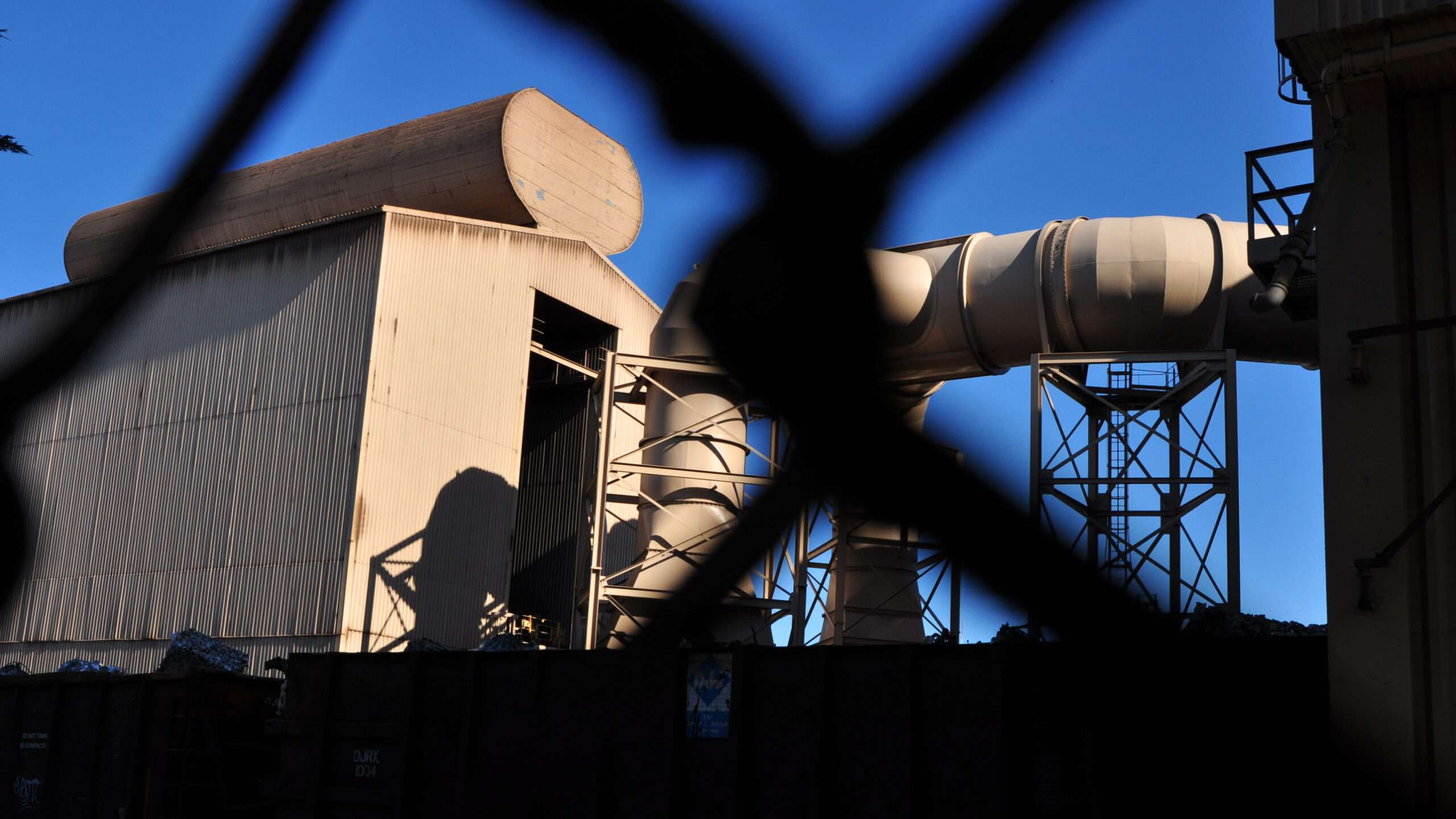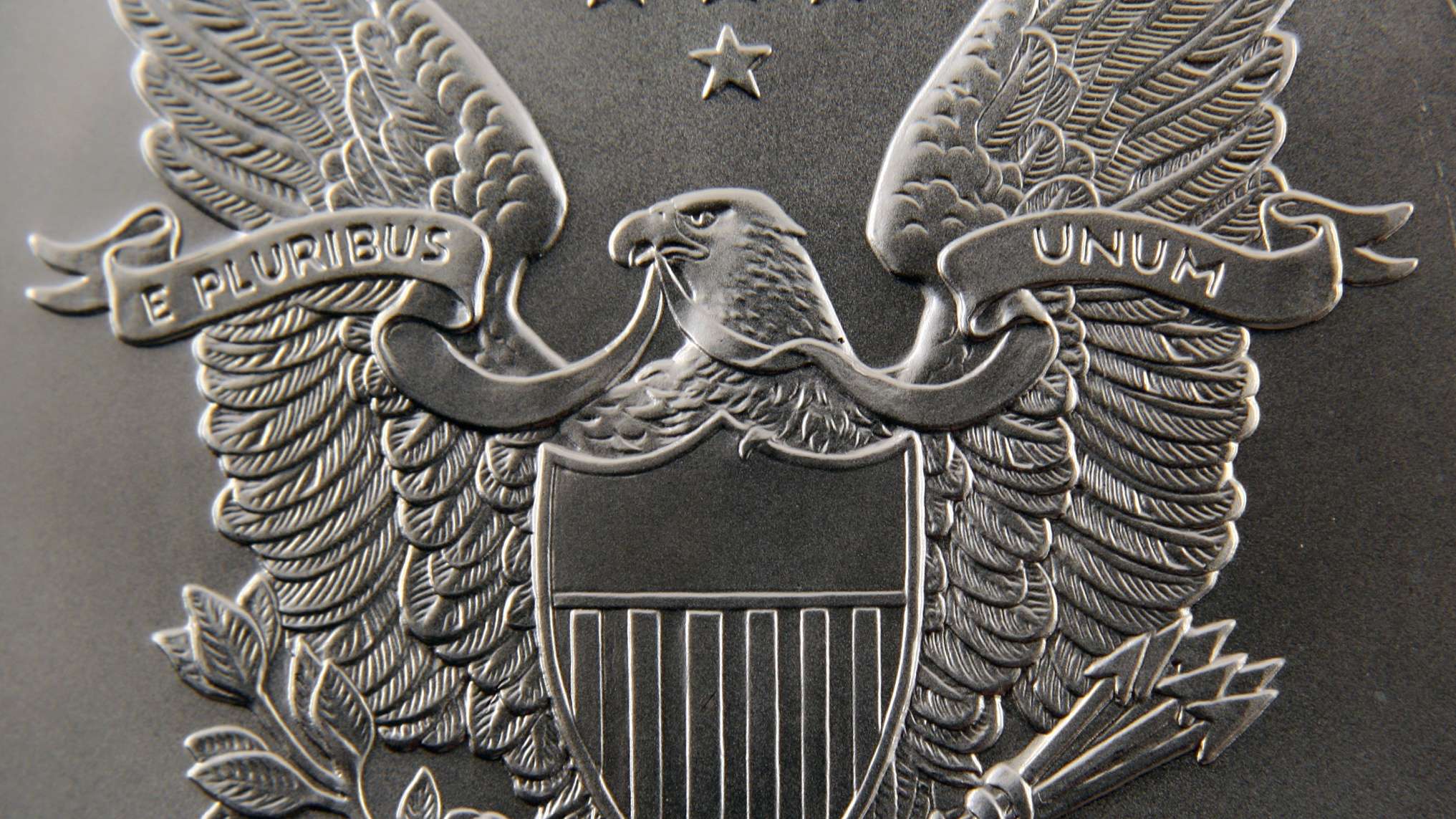Editors note: The mainstream press is waking up to the fact that U.S. trade intervention is working to reduce China’s influence and power.
Beijing once could count on allies in business and politics to help get its way. Now many of its old allies are staying on the sidelines.
[Keith Bradsher | May 17, 2019 | The NY Times]
A Chinese automotive assembly line in Beilun in Zhejiang Province, China. China’s economic slowdown, which could hinder growth globally, is a major reason that Beijing’s influence has ebbed.Bryan Denton for The New York Times

China usually gets its way. In Washington, on Wall Street and in corporate boardrooms, Beijing has used the country’s size and promise for decades to quell opposition and reward those who helped its rise.
Those days may be coming to an end.
As it struggles with President Trump’s trade war, a maturing and debt-laden China is discovering that it no longer has the same pull. Members of both political parties in the United States favor a tougher stance against Beijing. Some old business allies are standing on the sidelines or even cheering the Trump administration’s strong stands.
China could still prevail on the trade war’s major issues. But the conflict’s length and severity reflect the growing perception that the country no longer holds the promise that once enthralled politicians and businesses in the United States.
Many American companies with large, profitable businesses in China do not want to pay expensive tariffs and worry that the United States is antagonizing the Chinese public, said Ker Gibbs, the president of the American Chamber of Commerce in Shanghai. But many of the same businesses also chafe at the numerous restrictions that China has long maintained on foreign companies.
“We’re looking at their expanding into global markets, and saying, ‘Wait a minute, why can’t we do that here?’” Mr. Gibbs said.
China’s economic slowdown, which could hinder growth globally, is a major reason its influence has ebbed. But there are other factors. The country’s heavy debts, built up over years of lending used to spur growth, limit its options. If it retaliates against the United States sharply by devaluing its currency or shutting factories crucial to global supply chains, the moves could ricochet and hurt its own newfound wealth.
Foreign businesses have found it less appealing to make or sell their products in China over the last several years because of heavy restrictions on foreign businesses, stronger local competitors and rising costs. Mr. Trump’s tariffs last year gave many businesses a final reason to look elsewhere.
Call it the ABC supply chain, as in “anywhere but China.”
On Wednesday, Kelly A. Kramer, the chief financial officer of Cisco, the big telecom equipment supplier, told investors that the company had “greatly, greatly reduced” its exposure to China because of the tariffs.
Morey, a company near Chicago that makes rugged electronics for bulldozers and other outdoor equipment, reluctantly paid more for printed circuit boards made in China after Mr. Trump imposed 10 percent tariffs on $200 billion a year in Chinese imports last fall.
With those tariffs now rising to 25 percent, Morey executives have begun talking to suppliers in Taiwan, South Korea and Singapore.
“I was thinking this is a short-term issue that will go away,” said George Whittier, the company’s president and chief operating officer, “and I don’t think you can rationally think that any more.”
China holds a lot of cards. It remains a huge profit source for Apple, Boeing, General Motors, Starbucks and other major corporations. It can use its substantial financial firepower and the government’s control over crucial economic levers to endure a protracted trade conflict, while state-run media outlets help stem discontent at home.
China holds a lot of cards. It remains a huge profit source for Apple, Boeing, General Motors, Starbucks and other major corporations.Roman Pilipey/EPA, via Shutterstock

Chinese officials and experts say the country can stand firm against Western pressure. Even some advocates of more market-oriented policies say Beijing should just make its own decisions now instead of tying them to a trade pact with Washington.
“China should focus on its own reform, which will eventually solve some current trade war contentious issues,” said Zhu Ning, a Tsinghua University economist.
Still, China has lost some of the swagger and appeal that once opened so many doors in Washington and on Wall Street.
China has long used its tremendous size and growth potential as both carrot and stick. Companies that played by its rules could gain access to a market ofmore than one billion people who were becoming increasingly affluent and eager to spend. Companies that complained could be left out.
It worked. G.M. and other companies caved in to demands like being forced to take on local joint venture partners, knowing that they were training future competitors. General Electric sold one complete diesel locomotive from Erie, Pa., to China, then taught the Chinese to build their own. Apple censors its App Store in China. When Google protested censorship and hacking, it was mostly kicked out.
Businesses then helped make China’s case in Washington. When China wanted to join the World Trade Organization, the global trade club, it enlisted Wall Street’s help. Businesses helped persuade successive American presidents to refrain from punishing China for manipulating its currency, even as Beijing manipulated its currency. They fought efforts to raise tariffs.
China remains vital to many businesses, but the dynamic has shifted. It still grows at a pace that developed countries envy. But its economy has slowed significantly from rates that as recently as 2010 topped 10 percent a year. Since Xi Jinping took power in 2012, the government has taken a stronger hand in business, requiring foreign companies to forge ties with the Communist Partyand demanding access to data.
Beijing has fewer ways to strike back against the United States now. Its tremendous success in nurturing its own homegrown industries, which has helped China’s economy rise up the value chain, has reduced its imports of American goods, giving it fewer items to hit with tariffs.
A decade ago, China bought Jeeps made in Michigan by Chrysler, bulldozers and other construction equipment made in Illinois by Caterpillar and huge diesel engines made in Indiana by Cummins. Now Chrysler makes Jeeps in Changsha and Guangzhou. Caterpillar makes construction equipment in Xuzhou. And Cummins builds engines at factories in Beijing, Chongqing, Hefei, Liuzhou, Xi’an and Xiangyang.
“China has been so effective at squeezing manufactured imports out of its market that it has really limited its options to retaliate,” said Brad Setser, a Treasury official in the Obama administration who is now an economist at the Council on Foreign Relations.
China’s imports from the United States now fall mostly into four big categories: Boeing aircraft from Washington State; semiconductors, mainly from Intel factories in Oregon; farm products and energy from the Great Plains and Texas; and German-brand sport utility vehicles from South Carolina and Alabama. Although China could still shake the American political system if any harsh retaliation hurt economic growth in the United States, it has fewer opportunities to target electoral swing states and hurt Mr. Trump’s chances of re-election next year.
An international trade fair in Shanghai last year. A decade ago, China bought Caterpillar bulldozers produced in Illinois. The company now makes construction equipment in Xuzhou.Aly Song/Reuters
Slapping tariffs on those industries could also have big drawbacks. China needs those chips for its technology upgrades. Targeting Boeing planes would shift more Chinese business to Airbus, giving the European aircraft maker more leverage in negotiations with Beijing. On agriculture, China still does not grow enough soybeans to meet its needs, so higher tariffs on American crops might simply mean higher food prices down the line.
China has also shown surprising vulnerabilities, like its dependence on American semiconductor technology and software. Last year, when the United States briefly prohibited American companies from selling technology to the Chinese telecommunications giant ZTE for violating sanctions against Iran and North Korea, ZTE ground to a halt.
“The trade friction has also been a cold shower that has made us see our structural shortcomings more clearly,” said a front-page commentary in People’s Daily on Monday that bore a pen name used to signal authoritative positions on international relations.
China has options besides tariffs, but they have disadvantages as well.
It could sell a large chunk of the $1.3 trillion in United States Treasury debt that it holds. That could temporarily push up American interest rates. But it would saddle China with large losses. Beijing would have to find someplace else to park the money. Its previous sales, undertaken mainly to shore up the country’s currency in 2015 and early 2016, did not affect the bond market much.
Another option would be for China to let its currency slide in value against the dollar, making its goods cheaper abroad and offsetting American tariffs. Doing that could prompt the Trump administration to raise its tariffs even higher. It might also tempt other countries to devalue their currencies, setting off a potentially costly currency war. And a Chinese devaluation could cause Chinese families and households to send their own savings out of the country.
China could crack down on American-owned factories in China or on those crucial to the supply chains of American companies. But that could lead still more multinational companies to consider leaving the country.
The dilemma for China is that the longer the trade war lasts, the more companies may decide to invest elsewhere. For now, domestic politics seem more important in China, with the leadership and the general public reacting angrily to what is portrayed in the country as peremptory American demands.
“We have the confidence and ability to withstand any external risks and impact,” Geng Shuang, the Foreign Ministry spokesman, said on Thursday.
Read the original article here.













